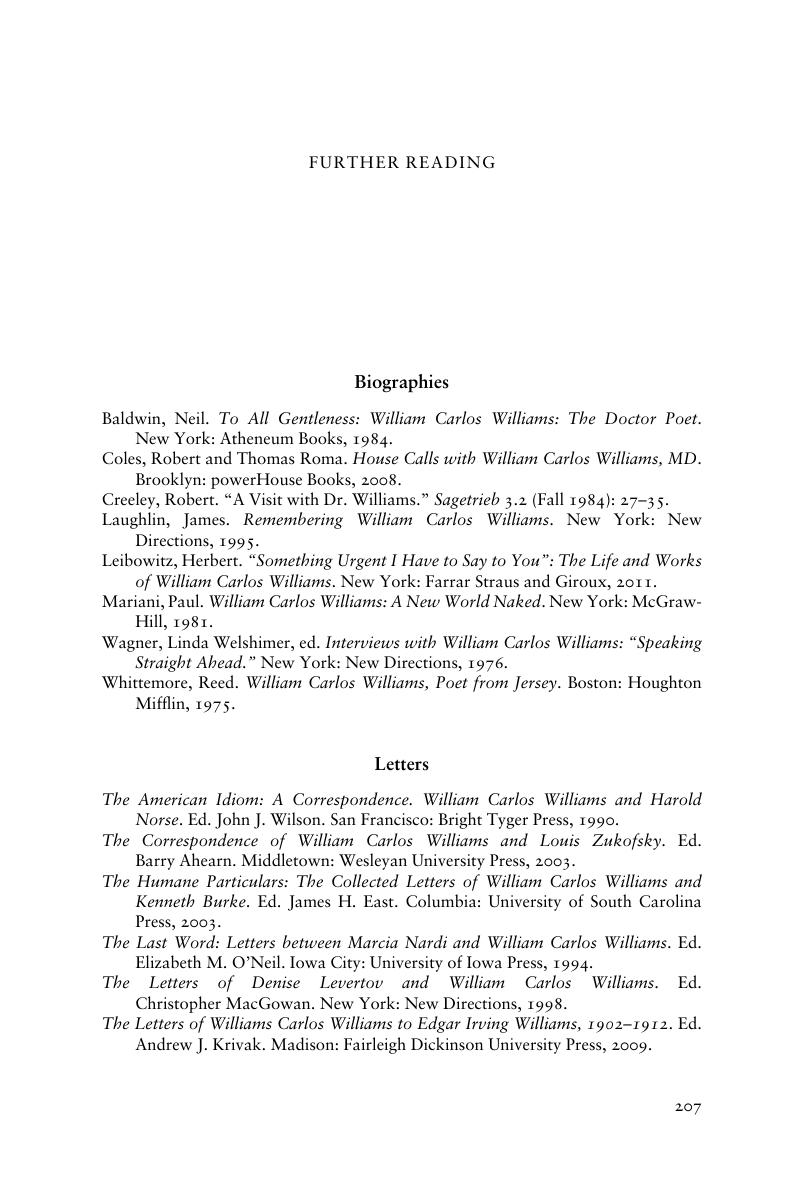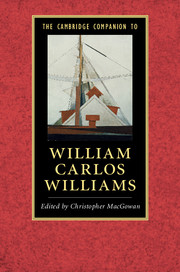Book contents
- The Cambridge Companion to William Carlos Williams
- Cambridge Companions to Literature
- The Cambridge Companion to William Carlos Williams
- Copyright page
- Contents
- Contributors
- Book part
- Chronology
- Glossary
- 1 Introduction: the lives of William Carlos Williams
- 2 William Carlos Williams and the local
- 3 Williams and his contemporaries
- 4 Williams and the visual arts
- 5 “No confusion – only difficulties” in Williams’sSpring and All
- 6 Williams and politics
- 7 William Carlos Williams and the prose of pure experience
- 8 Paterson: an epic in four or five or six parts
- 9 Pictures from Brueghel:looking backward, pointing forward
- 10 Williams in the American grain
- 11 Williams and women
- 12 Reading Carlos: baroque as straight ahead
- 13 Williams, science, and the body
- 14 Williams: the new poetries and legacy
- Further reading
- Index
- Cambridge Companions to Literature
- References
Further reading
Published online by Cambridge University Press: 05 June 2016
- The Cambridge Companion to William Carlos Williams
- Cambridge Companions to Literature
- The Cambridge Companion to William Carlos Williams
- Copyright page
- Contents
- Contributors
- Book part
- Chronology
- Glossary
- 1 Introduction: the lives of William Carlos Williams
- 2 William Carlos Williams and the local
- 3 Williams and his contemporaries
- 4 Williams and the visual arts
- 5 “No confusion – only difficulties” in Williams’sSpring and All
- 6 Williams and politics
- 7 William Carlos Williams and the prose of pure experience
- 8 Paterson: an epic in four or five or six parts
- 9 Pictures from Brueghel:looking backward, pointing forward
- 10 Williams in the American grain
- 11 Williams and women
- 12 Reading Carlos: baroque as straight ahead
- 13 Williams, science, and the body
- 14 Williams: the new poetries and legacy
- Further reading
- Index
- Cambridge Companions to Literature
- References
Summary

- Type
- Chapter
- Information
- The Cambridge Companion to William Carlos Williams , pp. 207 - 214Publisher: Cambridge University PressPrint publication year: 2016



